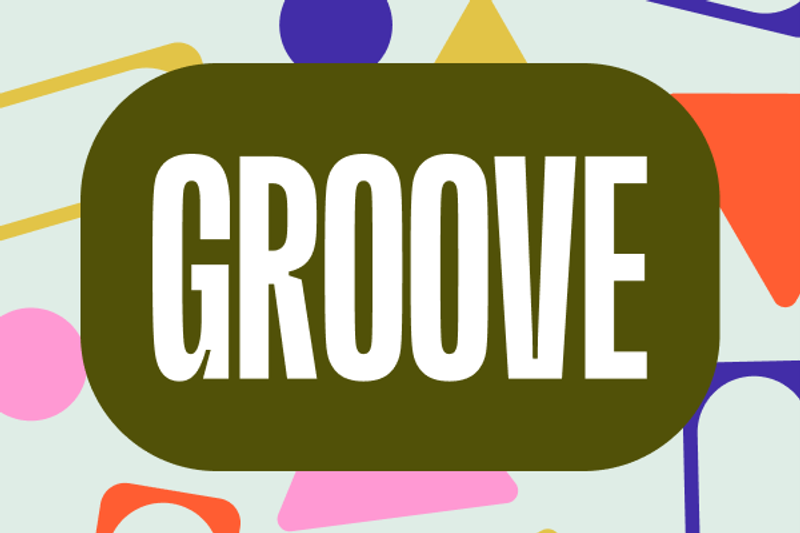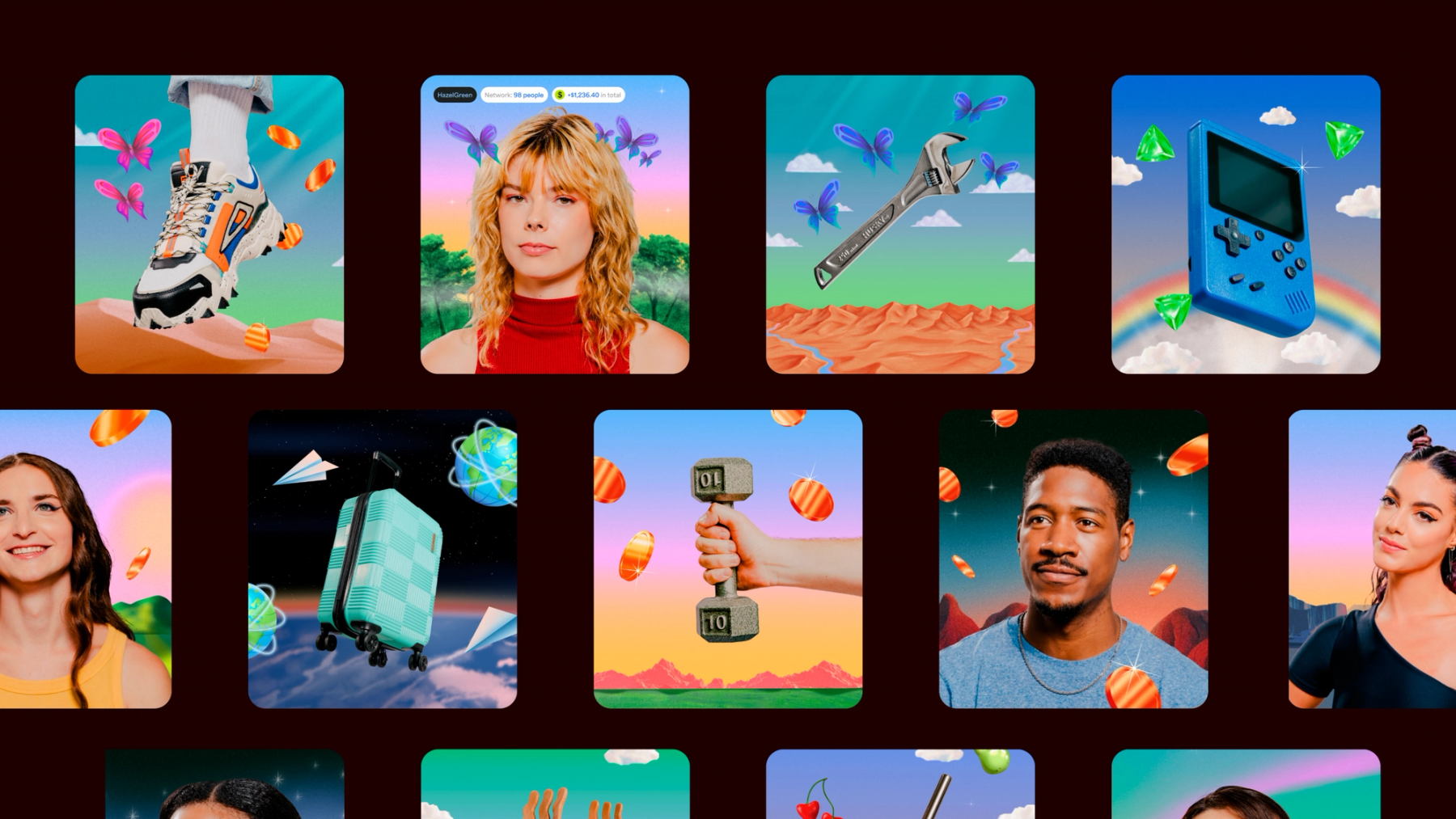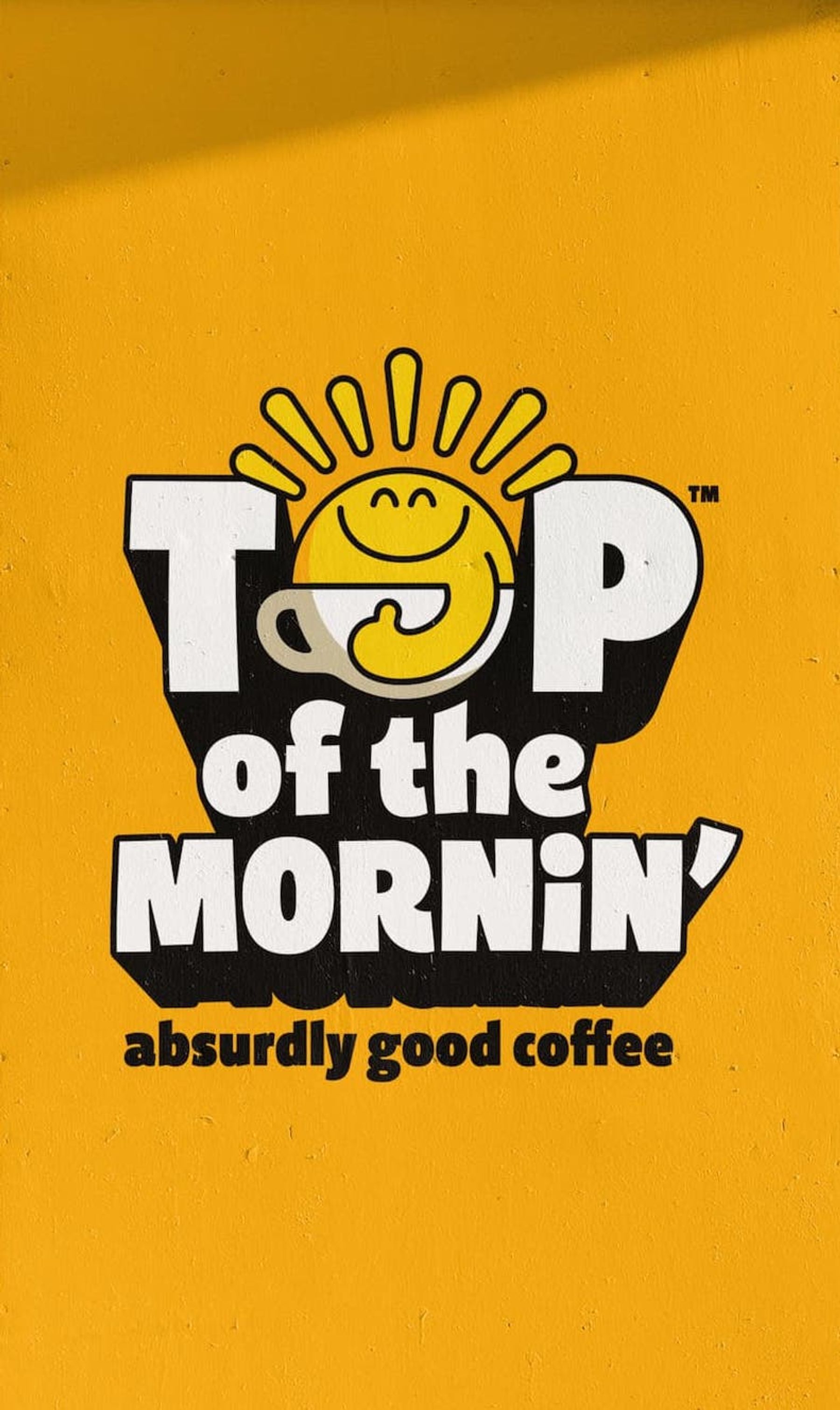Groove co-founder Josh Greene says startups should think about branding as a moving target, rather than a fixed mark – and shares why ‘freemium’ can be your own worst enemy
Josh Greene and his co-founders set up ‘everyday co-working app’ Groove in 2021 – initially as a way of helping friends work together without being in the same place. It’s evolved into a fully fledged digital product designed to give remote workers a better feeling of accountability and community. Users check into an online session, or Groove, with a small group of people, work in companionable silence for a set amount of time, and then finish off within a final reflection about what they achieved. Greene describes the ritual as akin to the moments of casual chat as people head in and out of a meeting room.
We spoke with him about creating a new model for the client-agency relationship, the perils of freemium, and why startups need a more iterative approach to branding and marketing.


- Emma TuckerCan you tell me a bit more about how Groove was born from this new, and obviously still changing, model of hybrid and remote work?
Josh GreeneWork has evolved since the industrial revolution to look like one thing: thick structures, rigid hours, rigid locations and rigid team structures. All of those things don’t really serve a lot of people. We’re building for the flexibles – the people that don’t need or want the same routine every day. Where and when they work changes, and what they’re working on evolves and moves.
- ETIt feels like, after Covid, there’s a much greater need for digital products that help people who are working from home, or are hybrid, and who might not have a permanent IRL team around them.
JGCovid was a great catalyst for us. I don’t think I could have raised venture dollars and lived in the mountains in a pre-Covid world. There’s a lot more possibility now than there ever has been – internally, emotionally and in the collective consciousness.
And it feels like we’re in the embryonic stages of how technology can support this. I listened to a really interesting roundtable discussion the European Parliament put on, talking about the different types of people in remote work: the integrators and the separators.
And they thrive very differently. Integrators want everything in life, they want to be at the yoga class and then work and have their dog around, and separators love boundaries between things. At first glance you might think wow, remote work is so much better for integrators, but actually it’s difficult because they don’t have boundaries. Separators do much better at home because they know they need a ritual, or a mental transition from work time to personal time.
All that to say we’re still figuring out, as humans, the keys to remote work. But that movement is what I’m betting on and building Groove around – this idea of how do we make sure we have the right infrastructure? Some of those fundamental questions need answering with technology.
“There’s an emerging trend in communities now, that there’s paid access from day one and it builds a much healthier exchange between the community and who’s running it.”
Josh Greene, Groove's co-founder
- ETI grew up with an internet where everything was free, and most people are used to the ‘freemium’ model. But you’ve launched Groove as a paid-for product.
JGI grew up in that similar generation where everything was free online, but free online creates misaligned motivations between consumers and companies. We have to think like a members’ club or a physical coworking space – it’s only as good as who is there, and that’s why social products often don’t charge early on, because the more people there the better. But I think there’s an emerging trend in communities now, that there’s paid access from day one and it builds a much healthier exchange between the community and who’s running it.
The other problem with freemium, apart from the fact it’s an atrocious word, is that it means you’re actively building a competitor to yourself all the time; your paid-for version of your product has to be distinctly better than your free version to incentivise people to transition. That makes sense in certain products, and some of those get so embedded in people’s lives that it’s inevitable they’ll become a customer at some point. But when you’re building a venture scale business, the rules of engagement are different – you’re looking for fundamental signals that there’s a future business here.
- ETWhat kind of role does brand and marketing play in all of this?
JGBrand fascinates me as something I fundamentally feel like it’s critical to invest in whenever you’re telling a new story. What are the things that make a story believable? What are the things that help people understand? Is this a story they want to tell in their own minds?
- ETCan brand can become a diversion, if it’s not handled properly?
JGI’m really on the journey to build a product that people intrinsically want to pick up and use every day, without being told to. What we’re looking for right now is a very clear signal that we’ve built something that can be relevant to lots of people in a venture scale way, and therefore you’re hoping the product does everything and solves such an important pain point in someone’s life that even if you give it to them in the worst packaging possible, they would still lap it up and pay money for it because it’s so important to them.
Brand or hype could be a really big distraction to understanding the signal of whether I’m on the right path early on in the journey. For example, there were a bunch of products, especially in the well-funded worlds of 2020 and 2021, where people would spend £200k on a brand, on day one, and actually it didn’t help them learn what they needed to learn, and their company just disappeared.
So there’s an interesting conversation of what role brand plays really early in your startup. The value of investing in brand in the right way is understanding that a founder is a storyteller, and they’re trying to get people to buy into a story of the way the world could be before the world is really that way. Brand is a profound exercise and tool to support doing that work. People understand that you’re on a journey, and they should go on that journey with you and invest time, even if the full product isn’t there yet. It gets a lot of buy-in quickly.



- ETDo you feel like brands that are early in that journey need to think about marketing and branding in a slightly different way?
JGI’m writing a story that’s still being written because the product is emergent and we’re in dialogue with the users. So the brand also has to emerge within that. Brand agencies often create a brand in a moment, in isolation, which is a snapshot of reality. Three months later, the story we need to tell looks different. So there's an interesting tension between how brand partners work and how brand has worked traditionally.
I think there needs to be a new toolkit for people that are building brands, around how you engage with early stage startups. So for Groove, instead of doing a full brand process, we’ve been doing marketing and taking insights from it. Every month we’ll upgrade the brand – so we won’t try and perfect the copy on the website, we’ll take what we have and make it better each month.
- ETAnd that’s a slightly different way of working than the traditional brand and agency partnership.
JGMy challenge is around how brand and marketing can be as emergent as product. How do we bring an experimental lens, when classically marketing is top down, with a fixed budget and six-month plan.
For me it’s about a different kind of relationship with a design or marketing partner in an emergent way that doesn’t create too much dependency. The most well-known brands of our generation are because the founder owned the story in so many ways and had partners that reinforced the story and gave new perspectives to it.
There needs to be a re-definition of the relationship between brand and agency. I’d rather have a week-long spring and iterate on the brand every month, rather than collect insights for two months and then create a brand. That way, insights that are coming through the business are siphoned into that work.
“There needs to be a re-definition of the relationship between brand and agency. I’d rather have a week-long spring and iterate on the brand every month, rather than collect insights for two months and then create a brand.”
- ETHow much do you think good branding and marketing sways investors?
JGIf you ask them, they’d say not very much, but if you look at what makes them write checks, they care a lot. If you look at the world that comes out of Y Combinator, they’ll care a lot about the story, they just might not call it brand.
And if you don’t have clarity on a lot of the fundamentals of what brand is – understanding the vision, your position within a category, where your wedge lies and the human insights you’re leaning into – you’re going to find it very difficult to raise money. Someone needs to be taken along that journey of, ‘Why do I give you $5m today?’ You’re not going to do well if you’re taking someone all the way up there and you don’t know what underlying strings are being pulled.



